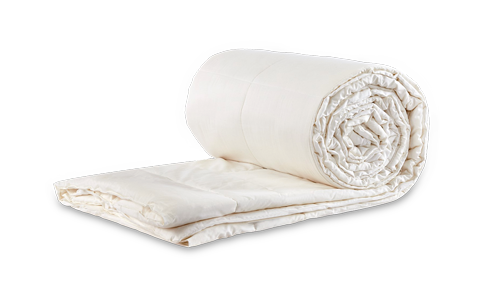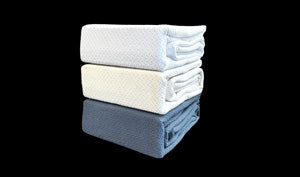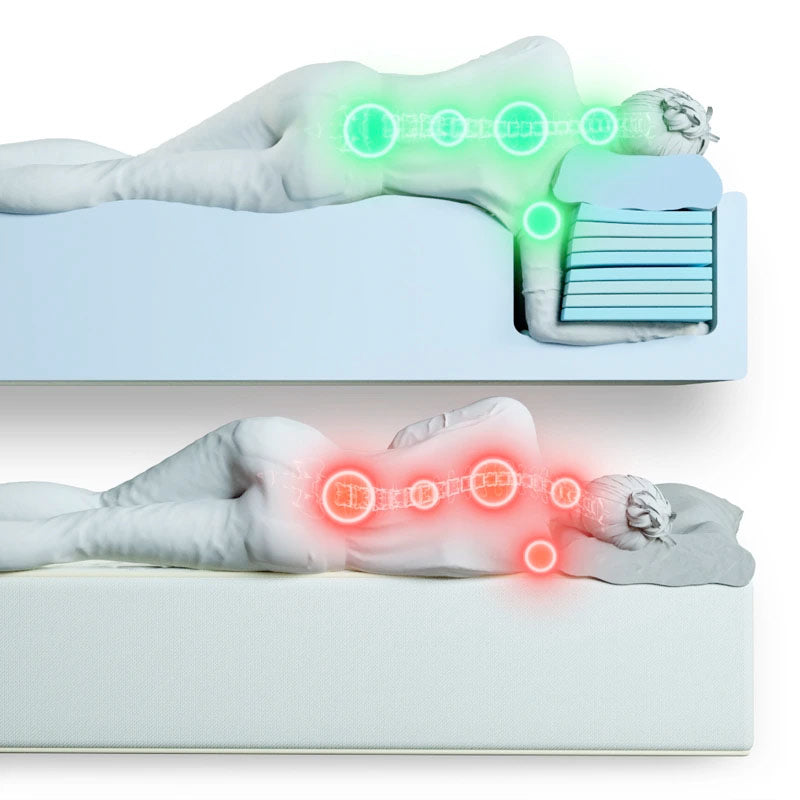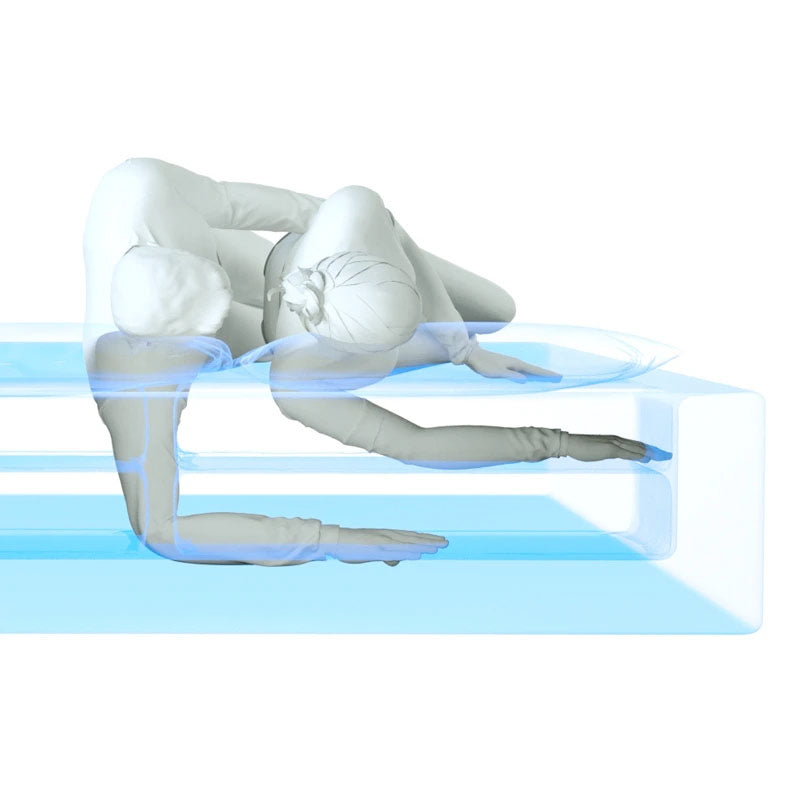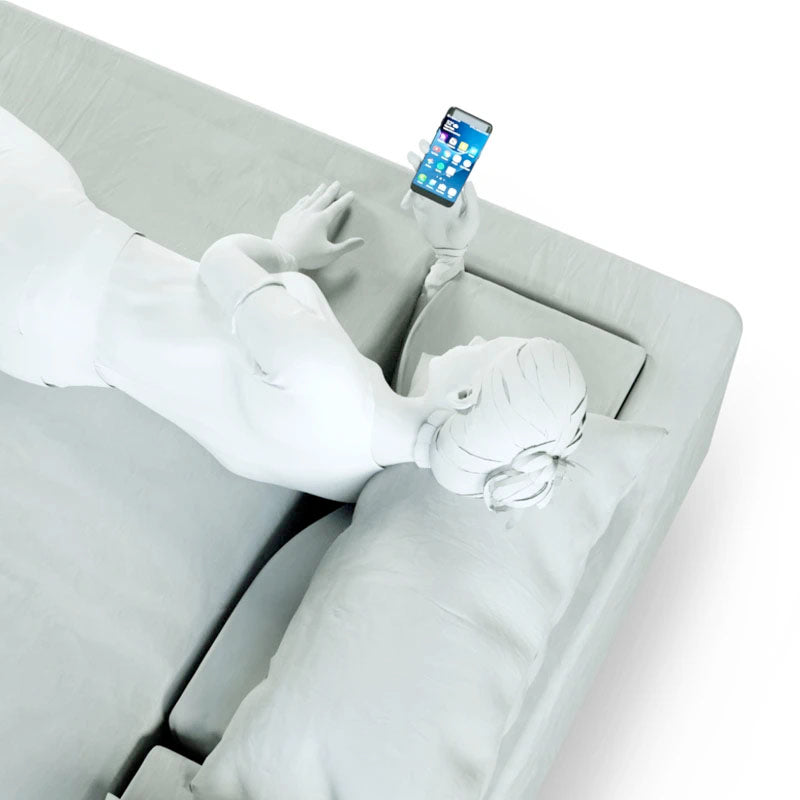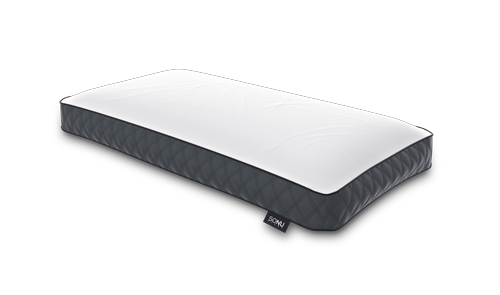Sleep is precious. After a long, stressful day, one of the best feelings in the world is getting into bed and falling asleep. But many people have trouble sleeping, and they’ve tried every supplement available with unsatisfactory results.
If you’ve tried melatonin and other supplements but still need some help falling asleep, we’re here to talk about some alternatives to get you those Zzzs — and why the SONU Sleep System will be your best one yet.
1. Tea
People have been drinking tea for medicinal and social purposes for centuries. In some cultures, drinking tea is seen as a prestigious activity. Today, many people drink tea for its health benefits or as an alternative to coffee.
Some versions of tea have a high concentration of caffeine, but several types have no caffeine at all. People sensitive to caffeine often drink these teas and have discovered that they help them relax or even fall asleep faster! So what are some of these magical teas?
Chamomile
Chamomile is one of the most popular teas that people drink to help them get some sleep. It contains a chemical compound known as apigenin, which can create a tranquilizing effect in the brain, although it is mild.
Chamomile tea was found to reduce sleep issues and symptoms of depression in postpartum women. Other people have also reported getting better sleep when drinking chamomile tea at bedtime.
Lavender
Lavender is a purple herb that has been used for aromatherapy since the Roman empire. Lavender oils and sprays are available that people apply to help themselves relax. In addition to oils and sprays, there are lavender teas.
Lavender tea can be a highly effective part of a nighttime routine. Although the effect is temporary, drinking lavender tea before bed helps people rest well and feel more alert the following day.
Valerian Root
Valerian root can help address issues that may affect a person’s sleep, like frequent headaches, heart palpitations, stress, and nervousness. By working to combat these issues, valerian root may support a better night’s sleep.
The extract from valerian root can be used to create tea. Nearly 90% of people who participated in a National Institute of Health study reported falling asleep faster after consuming valerian root tea. This may be due to two sedatives that the valerian root contains, called sesquiterpenes and valepotriates.
Passionflower
Flavonoids of the passionflower bind to brain receptors, reducing symptoms of anxiety. One cup of passionflower tea before bedtime may be all it takes to help you fall asleep. Using passionflower in addition to valerian root can provide short-term relief for insomnia, but this has only been proven to work in capsule form.
Lemon Balm
We’ll bet you didn’t know that lemon balm (or Melissa officinalis, as it’s also known) is part of the mint family! The sweet, citrus-scented plant has antibacterial and antiviral properties.
If you suffer from restlessness, anxiety, depression, or insomnia, drinking lemon balm tea can provide you some relief. Drinking this tea at bedtime can help you get some of the best sleep you’ve had in a long time.
Magnolia Bark
For thousands of years, magnolia bark has been a popular sleep aid. The tea is made from the bark of the magnolia tree. Although people who have taken magnolia bark reported waking up in the middle of the night, it didn’t take long before they fell back asleep.
Magnolia bark works by binding to the brain’s GABA receptors. Some people do not enjoy the taste of the tea, but there are ways to make it tastier, like adding honey or agave nectar to it.
Before consuming any of these teas, check with your doctor to see if they could possibly cause allergic reactions or interact negatively with medications.
2. Exercise
People who work out tend to have better quality sleep, and getting better sleep leaves you with more energy the following day.
How Does Exercise Help You Sleep?
Before performing any exercise, you should assess what your body needs. Not everyone enjoys the same type of exercise, nor is every form of physical activity suitable for every person’s joints.
The best workouts for your body might differ from those of your peers. Once you’ve established the type of exercise you like, you can develop a routine and keep track of how your sleep changes.
Exactly how does exercise improve your sleep? Researchers don’t really know. What they do know is that you get more slow-wave sleep after doing moderate aerobic exercise.
Slow-wave sleep is deep sleep. Our brains and bodies replenish themselves when we get deep sleep, which is important for cognitive processing and mood stabilization. Exercise has also been shown to reduce sleep apnea in adults.
Does When You Exercise Matter?
Aerobic exercise does two things:
- It makes the body release endorphins.
- It raises core body temperature.
Endorphins increase brain activity, which keeps you alert. It can take up to two hours for that alertness to wane and the endorphin levels to lower.
Additionally, an increase in body temperature can wake most people up. It’s like an internal clock telling you to get up. It can take up to 90 minutes for your body temperature to lower post-workout.
So, what does this tell us? Because exercise can make you more alert and energetic, you need to consider what time would be best to perform it. For some people, that time is early in the morning to help them kickstart the day.
Some people like to work out at night. As long as the body is given time to cool down and go back to normal endorphin levels, working out a few hours before bedtime is not an issue. As long as you don’t hit the gym right before crawling into bed, you can end up sleeping well.
How Much Do You Need To Exercise?
Thirty minutes of exercise may be all it takes to help you get a restful sleep. The effects might even be immediate; you could see a difference in your sleep the first night after you’ve exercised, no matter what time of day it was.
Some forms of aerobic exercise, like yoga or walking, are shown to elevate your heart rate more and activate the processes in the brain that help you sleep. Don’t feel pressure to over-exert yourself to sleep better; any exercise that gets your heart rate up will suffice as long as you do it for at least 30 minutes.
If you are still having sleep issues after working out regularly, talk to your doctor. There may be other health changes you need to make in order to improve your sleep. Alternatively, an inability to sleep, even after exercising, may indicate that you need a new mattress. With innovative sink-in comfort and Support Pillows, the SONU Sleep System can help.
3. Develop a Sleep Routine
Once you’ve figured out the tea you want to drink and the exercises you want to do to help you sleep, you can begin working on a regular sleep routine. Creating a sleep routine can help you get the sleep you need. There are myriad things you can include in your sleep routine.
Create a Relaxing Environment
Turn your bedroom into a healthy sleep environment.
Keep the television and your computer out of your bedroom, or at least turn them off a few hours before bed. Turn the thermostat down a few degrees to make the room cooler. Buy blackout curtains to help keep light out of your eyes. Invest in a new bed, like the SONU Sleep System.
If you live with others or in an area prone to noise pollution, try to block out the noise by purchasing a white noise machine or turning on a fan.
Choose a Consistent Bedtime
Do your best to go to bed at the same time every night. Go at a time that will allow you to get at least eight full hours of sleep. Encourage your family members to go to bed at a regular time as a way to support each other.
If you can, avoid afternoon naps. Napping during the day can prevent you from sleeping throughout the night.
Turn Off Your Devices
Stop watching television at the same time each evening. Don’t stay up late watching TV shows. Put your phone down. If you don’t want to turn it off, put it on Do Not Disturb and place it face down on a surface that isn’t close to your bed, like a dresser across the room. Make sure your computer is powered down.
Limit Your Intake of Coffee and Alcohol
Certain food and drinks can disrupt your sleeping pattern. Caffeine and alcohol are two of the worst offenders.
Stop drinking caffeinated beverages by the early afternoon — caffeine lingers in our bodies for hours after consumption. You need to leave enough time for it to work its way out of your body.
We all know someone who likes to take a “nightcap,” aka have a small drink before going to bed. That drink, whether it’s a glass of wine or something else, can cause you to wake up in the middle of the night.
Try to avoid heavy meals a few hours before bed, as this can keep your digestive system running overtime. Something light like yogurt or fruit is ideal if you need a snack.
Do a Calming Activity
Help yourself relax further by doing something calming. Try doing light stretches or a gentle yoga routine, or simply practicing deep breathing exercises. Draw, listen to some slow music, or read a book. Keep a journal and write down your thoughts from each day.
All of these activities are great for creating a relaxing sleep routine.
4. A New Mattress
Sometimes, the real reason you have trouble sleeping is that your mattress is ready for an upgrade.
In that case, there’s only one thing you can do: replace it!
The SONU Sleep System features a Comfort Channel that allows side sleepers to fully immerse their arm and shoulder into the bed, preventing uncomfortable pressure and pain from impacting you. SONU’s system also features four Support Pillows designed to provide optimal head and neck comfort while allowing you to achieve the best sleeping position.
SONU’s mattress lets you enjoy sink-in support that aligns the spine while you are side sleeping, meaning you can have the sleeping experience of your dreams.
If you’re someone who loses sleep due to pain and stiffness, you might be surprised by how well swapping out your mattress can help address your issues.
Once you’ve invested in a top-of-the-line mattress like SONU’s, you’ll want to maintain it. A mattress cover will prevent moisture from damaging your bed and will help keep dust mites away. Rotating the mattress every few months can also help prevent lumps from developing. You can even vacuum your mattress to keep it clean and free of allergens.
A good mattress will help you maintain correct sleep posture, relieve any discomfort you may have, and make falling asleep – and staying asleep – easier.
If you’re ready to experience a more serene sleep experience, SONU is here for you.
Conclusion
As you can see, there is an abundance of alternatives to melatonin and other sleep supplements. The SONU Sleep System is one of the best. With four Support Pillows, a Comfort Channel to immerse your shoulder, and optimal, sink-in support, SONU can help you enjoy an unforgettable night of sleep.
Don’t wait another day — treat yourself to the sleep you deserve.
Sources
Melatonin for Sleep: Does It Work? | Johns Hopkins Medicine
Drinking the Right Tea Can Help You Sleep | Sleep Foundation
The history of tea | alimentarium
Double blind study of a valerian preparation | NIH
How Exercise Affects Your Sleep | Cleveland Clinic
Exercising for Better Sleep | Johns Hopkins Medicine
Research notes: 5 surprising facts about exercise and sleep | AASM
Creating a Sleep Routine - 6 Steps to Better Sleep | Washington University Human Resources













